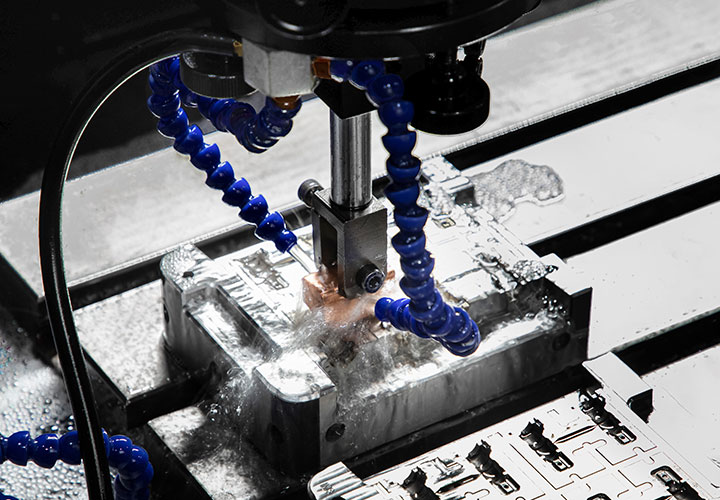Introduction
Plastic injection molding is a pivotal process in manufacturing, offering versatility in creating precise components. Precision temperature control stands out as a critical factor influencing the success of plastic injection molding. This article explores how accurate temperature management enhances plastic injection molding outcomes.

The Role of Temperature in Plastic Injection Molding
Understanding the influence of temperature on the molding process is paramount. Temperature impacts material behavior, affecting crucial aspects of the molding cycle. For injection molding manufacturers, mastering temperature control is critical to achieving consistent, high-quality results throughout production runs.
Advantages of Precision Temperature Control
Improved Molding Consistency
Precision temperature control ensures consistent and reliable molding, enhancing part quality and repeatability. This is crucial for injection molding manufacturers, providing confidence in meeting stringent standards.
Minimizing Defects
Precise temperature control significantly reduces common defects in plastic injection molding, improving surface finish and structural integrity. This contributes to the overall quality of molded parts.
Optimizing Cycle Times
Balancing speed and quality is a challenge in injection molding. Precision temperature control accelerates cooling phases, leading to shorter cycle times and increasing production efficiency without compromising quality.
Technological Solutions for Precision Temperature Control
Advanced heating and cooling systems and IoT-driven data monitoring are pivotal in achieving precision temperature control. Injection molding manufacturers leverage these technologies to optimize the molding process.
Advanced Heating and Cooling Systems
Cutting-edge systems respond rapidly to temperature changes, ensuring optimal conditions during each phase of the injection molding cycle. Integration enhances overall efficiency and effectiveness.
IoT and Data Monitoring
Real-time monitoring and data-driven insights through IoT integration enable precise control, ensuring the molding process remains within specified temperature parameters.
Case Studies: Successful Implementations of Precision Temperature Control
Real-world case studies demonstrate the tangible benefits of precision temperature control.
Case Study 1: Automotive Component Production
Advanced temperature control significantly reduced defects, meeting automotive industry standards and increasing client satisfaction.
Case Study 2: Consumer Electronics Enclosures
IoT-enabled temperature monitoring reduced rejection rates, optimized production efficiency, and resulted in cost savings.
Considerations for Users Seeking Injection Molding Services
Understanding the role of precision temperature control is crucial for users seeking plastic injection molding services. Consider the following questions when selecting an injection molding manufacturer:
Questions to Ask Potential Service Providers
1.Temperature Control Methodologies:
- Inquire about specific temperature control methods employed during the injection molding process.
- Ask how they address temperature variations and ensure consistency in molding.
2.Integration of Technology:
- Evaluate the level of technology integration in their operations, especially in terms of heating and cooling systems.
- Inquire about the use of IoT and data monitoring for real-time process adjustments.
Understanding the Impact on Cost and Efficiency
1.Balancing Precision with Cost:
- Understand how precision temperature control affects overall production costs.
- Inquire about the cost-benefit ratio and the potential long-term savings through improved efficiency.
Future Trends in Precision Temperature Control for Plastic Injection Molding
As technology advances, the plastic injection molding industry is poised for exciting developments in precision temperature control.
Emerging Technologies and Their Potential Impact
1.AI-Driven Temperature Optimization:
- Integration of artificial intelligence for predictive temperature control, anticipating variations, and optimizing settings in real-time.
2.Smart Materials for Temperature Sensing:
- Developed and utilized smart materials with built-in temperature sensing capabilities, providing more accurate feedback for control systems.
Continuous Improvement in Molding Processes
1.Closed-Loop Systems:
- Widespread adoption of closed-loop systems that continuously monitor and adjust temperature settings throughout the injection molding.
2.Energy-Efficient Heating and Cooling:
- Advancements in energy-efficient heating and cooling technologies to reduce environmental impact while maintaining precise temperature control.
Conclusion
Precision temperature control is critical in optimizing plastic injection molding processes, ensuring consistent quality, minimizing defects, and enhancing efficiency. For users seeking plastic injection molding services, understanding the importance of temperature control and asking relevant questions will aid in selecting the right manufacturing partner.
